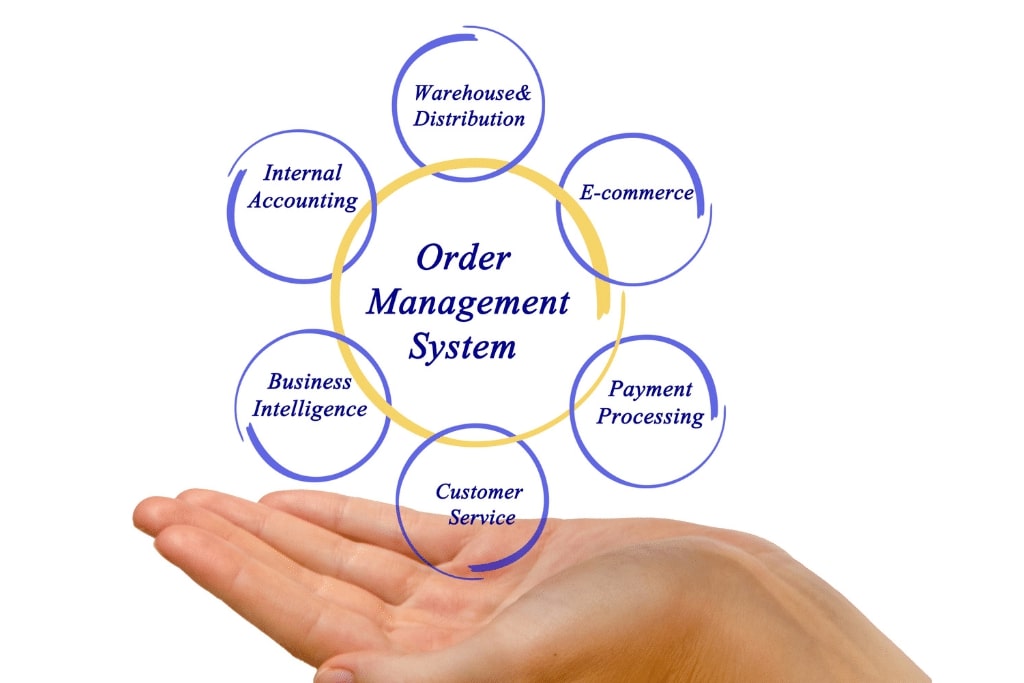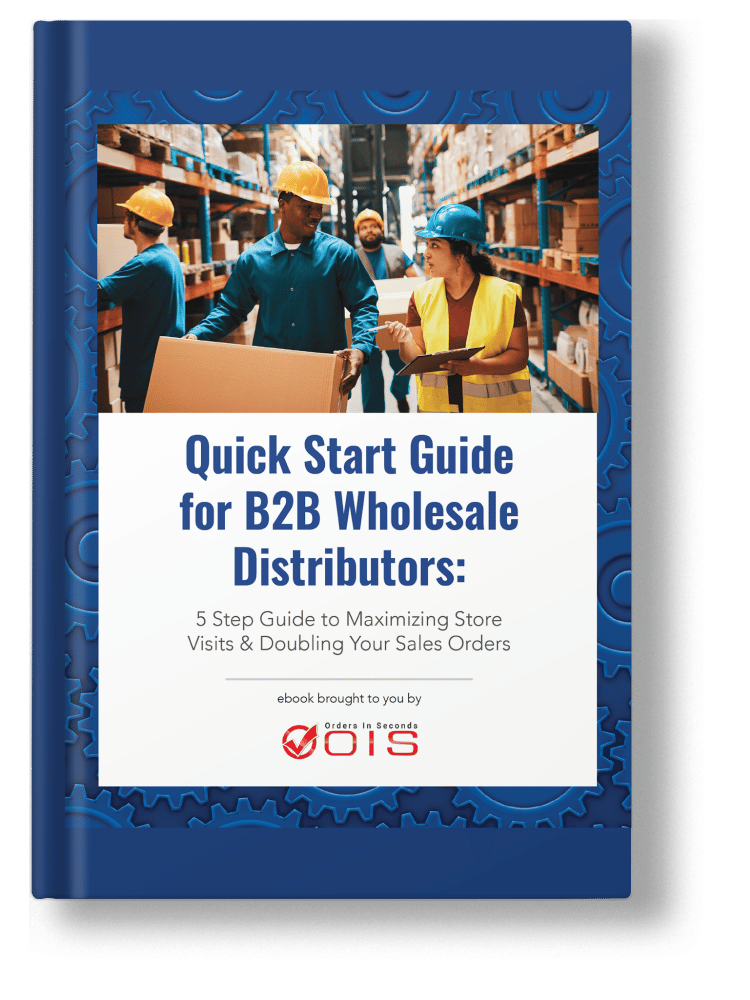Key Takeaways
Looking for the best B2B order management software to streamline your business operations in 2025? This guide will help you understand what these systems offer and explore the top solutions available. Read on to discover how B2B order management software can optimize your processes and improve efficiency.
- B2B order management software improves operational efficiency by optimizing inventory levels, automating data entry, and enhancing logistics, ultimately reducing customer complaints.
- Key types of B2B order management software include Traditional OMS, ERP systems, and Hybrid solutions, each tailored for different business needs.
- Essential features of effective B2B order management software include automated order tracking, dynamic pricing management, and advanced supply chain management to enhance customer satisfaction and streamline operations.
Table of Contents
- Understanding B2B Order Management Software
- Key Types of B2B Order Management Software
- Essential Features of B2B Order Management Software
- Factors to Consider When Choosing B2B Order Management Software
- Leading B2B Order Management Software Solutions for 2025
- How B2B Order Management Software Boosts Business Efficiency
- Addressing Common Challenges with B2B Order Management
- Summary
- Frequently Asked Questions
- Take Control of Your B2B Operations with Orders in Seconds
Understanding B2B Order Management Software

B2B order management software is designed to manage orders between businesses, facilitating tracking of global inventory, sales, fulfillment, deliveries, and returns. Its primary purpose is to streamline processes and improve operational efficiency within B2B e-commerce platforms. This software enhances business operations by optimizing inventory levels, automating data entry, and improving overall accuracy.
One of the most significant benefits of B2B order management software is its ability to reduce the time spent on data searches and customer complaints. Efficient routing of items throughout the supply chain helps the software address complexities and enhance logistics surrounding purchase orders. Effective communication methods, such as sending invoices with a payment link, reinforce strong customer relationships and enhance trust.
Moreover, custom delivery and billing communication demonstrate that businesses recognize their customers’ unique needs, significantly improving their experience. B2B customers often require attractive pricing, bulk ordering options, flexible payments, and transparent communication during their purchasing process. Addressing these specific needs is vital for maintaining a competitive advantage and fulfilling expectations.
Key Types of B2B Order Management Software
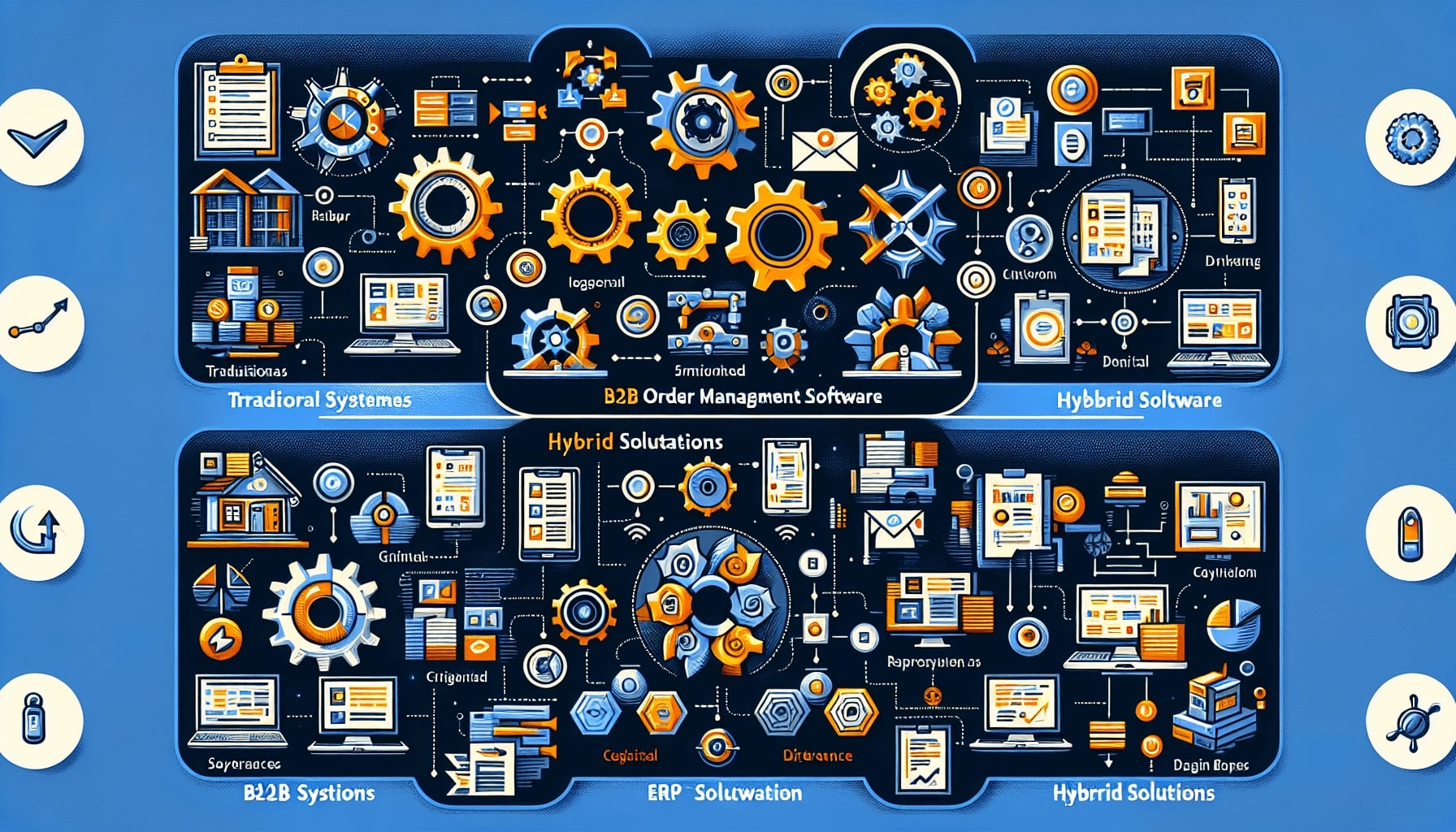
Navigating the landscape of B2B order management software requires understanding the different types available. Each type offers distinct advantages and functionalities tailored to various business needs.
This section will delve into traditional order management systems (OMS), enterprise resource planning (ERP) software, and hybrid solutions that combine the best of both worlds.
Traditional Order Management Systems (OMS)
Traditional order management software can accommodate businesses of all sizes, making it accessible to a diverse range of companies. These standalone order management systems are typically paired with accounting and e-commerce platforms to enhance functionality. When a backorder is created, the inventory data is updated to reflect the change in product availability, ensuring accurate order fulfillment.
Distribution centers handle product allocation for orders through manual processing or automation, optimizing logistics operations. Traditional order management software can effectively manage sales from third-party e-commerce platforms such as Alibaba, enabling broader reach.
However, using standalone order management software can present challenges like limited access to real-time information, which can affect cost-effectiveness. Communicating immediately with customers when an item is out of stock helps minimize the impact of stock shortages and ensures customer satisfaction.
If mistakes are holding back your wholesale distribution business, download our free eBook “Avoid the Top 5 Mistakes Wholesale Distributors Make” and discover key strategies to optimize your operations for success!

Avoid the Top 5 Mistakes Wholesale Distributors Make
Enterprise Resource Planning (ERP) Software
ERP software provides an integrated system for managing various business functions such as inventory, financials, payroll, human resources, CRM, and logistics. This seamless integration ensures cohesive operations across all aspects of the business, including product design, inventory, CRM, sales, and marketing. ERP software offers functionalities that allow sales and customer service teams to access crucial information such as inventory levels, past purchase orders, and delivery confirmations.
Typically, large companies opt for complete ERP e-commerce integration to manage their complex operational needs. The comprehensive nature of ERP systems supports large-scale operations and provides a robust framework for handling extensive business processes, making them a preferred choice for big corporations.
Hybrid Solutions
Hybrid solutions merge the functions of ERP software with the user-friendliness of OMS. These solutions allow for efficient management of orders, shipping, tracking, and marketing strategies.
An example of a hybrid solution is Linnworks, which offers a cloud-based order management platform that integrates inventory, orders, and shipping for streamlined operations.
Essential Features of B2B Order Management Software
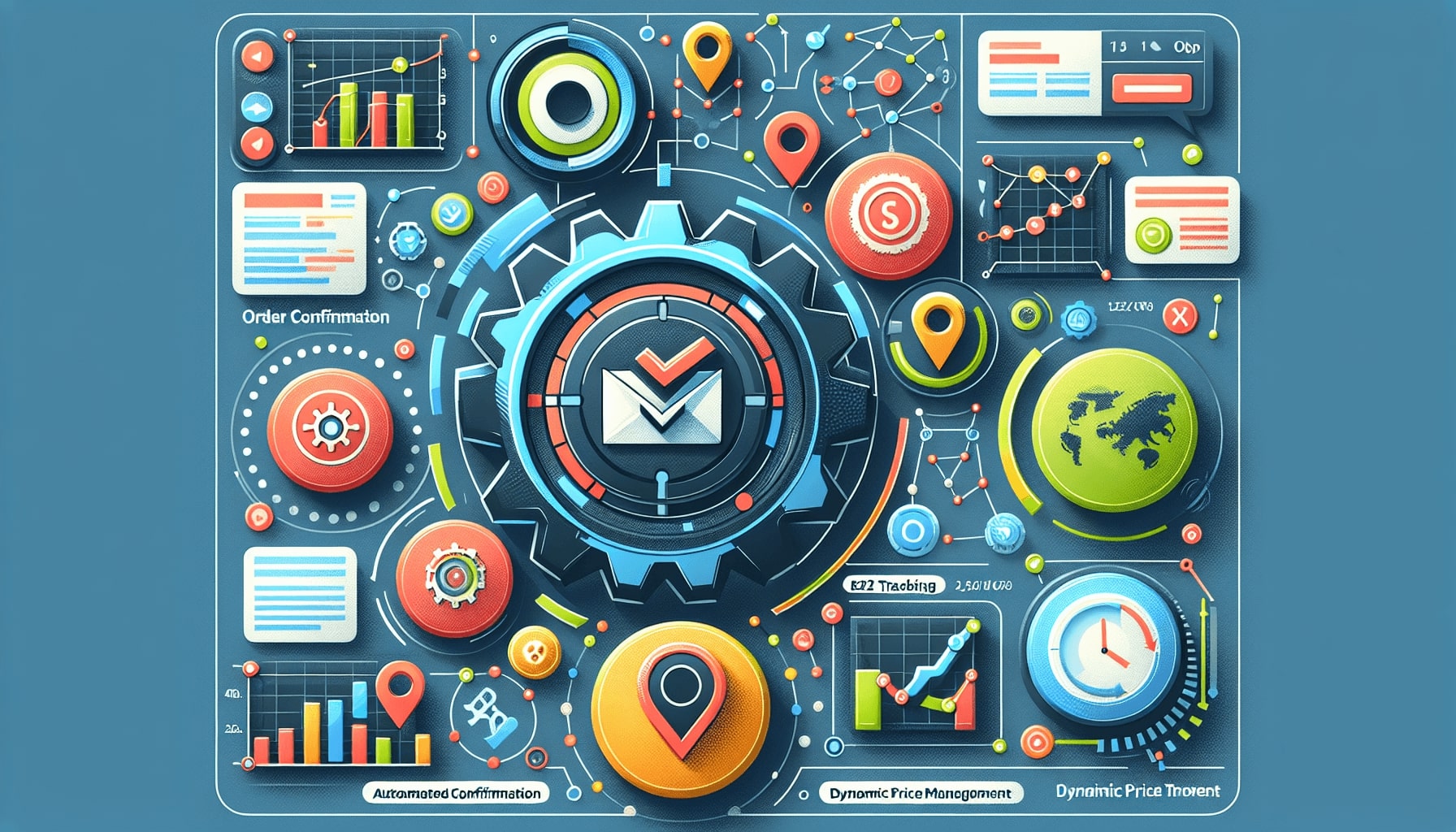
Successful B2B order management software must possess several essential features to streamline business operations effectively. Key functionalities include managing order confirmations, shipping notifications, real-time tracking, pricing strategies, and advanced supply chain management.
This section will explore these features in detail, highlighting their importance in optimizing the order management process.
Automated Order Confirmation
Automated order confirmations streamline communication and promptly inform customers about their orders, making them integral to modern B2B order management. Order confirmations can be communicated through various methods, including email, text messages, or printed receipts, providing flexibility for customer preferences. Information for order confirmations can be collected manually or automatically, leading to quicker response times and reducing the possibility of errors.
Automatic notifications in order confirmations include key details like order numbers and estimated shipping costs, greatly enhancing customer communication. These features not only expedite the order management process but also play a crucial role in maintaining customer satisfaction and trust.
Real-Time Order Tracking
Real-time tracking is essential in B2B order management as it enhances customer satisfaction and operational transparency. The complexity of B2B orders necessitates real-time inventory visibility to ensure timely and accurate order fulfillment. Platforms can retrieve and showcase shipping information from various delivery services, allowing customers to track their orders on the business’s site.
Providing real-time tracking not only improves the customer experience by keeping them informed but also helps businesses monitor their supply chain efficiency, leading to better overall performance.
Dynamic Price Management
Dynamic price management is vital for maintaining consistent pricing strategies across various sales platforms. The software ensures price uniformity across a business’s online platform, preventing discrepancies that could confuse customers.
Additionally, differentiated pricing features enable businesses to offer tailored pricing based on customer profiles, enhancing customer satisfaction and loyalty.
Advanced Supply Chain Management
Advanced supply chain management features in B2B order management software help automate the procurement process, ensuring products are reordered automatically when stock levels fall below a certain threshold. Cin7 Orderhive supports various retail operations including POS services, invoicing, and shipping logistics in addition to inventory management.
Shopify includes features for advanced order management, enabling integration with both online and physical retail environments. Orders in Seconds enhances supply chain management by providing real-time inventory visibility, automated order processing, and seamless integration with ERP systems.
Factors to Consider When Choosing B2B Order Management Software
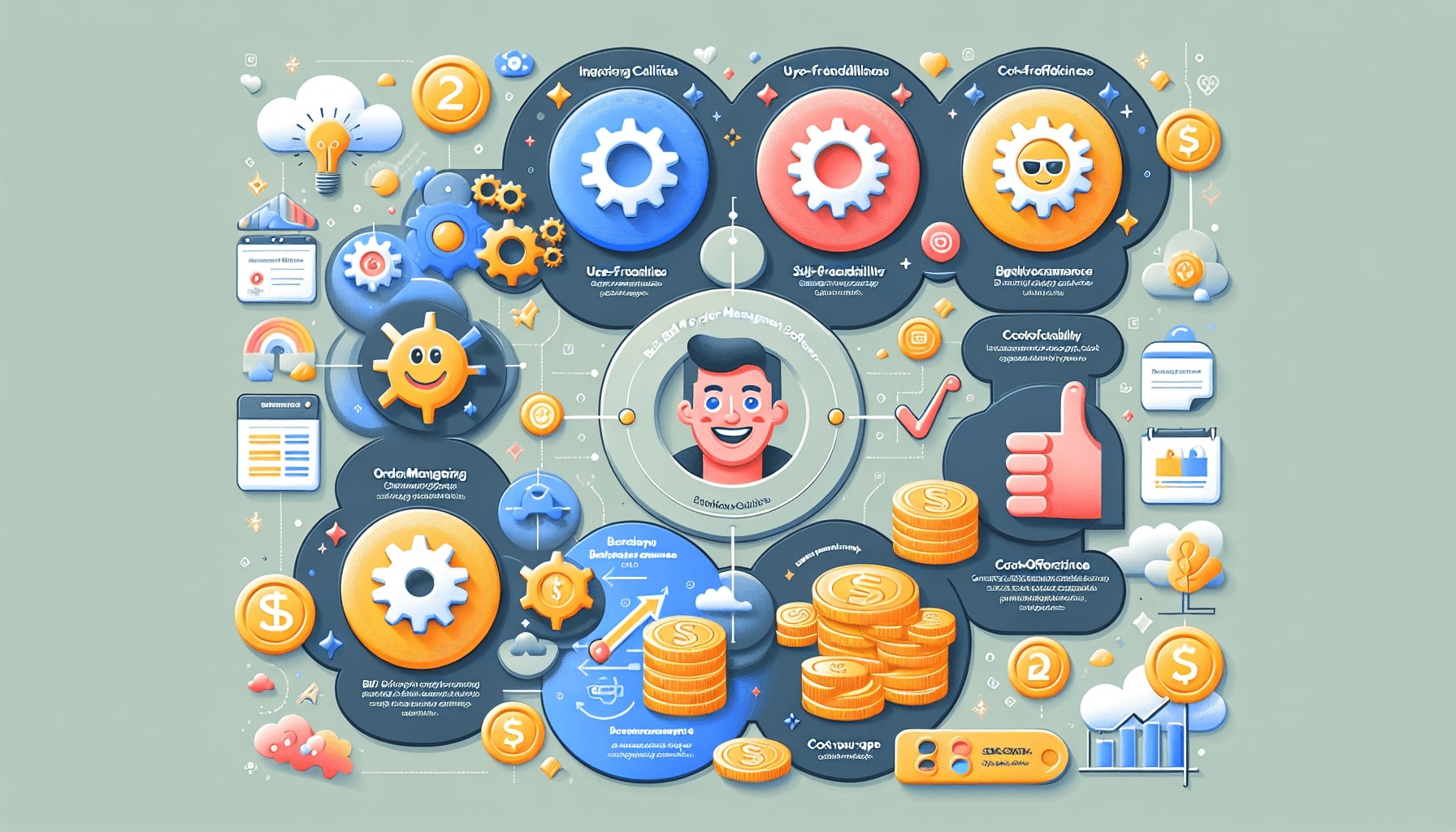
Choosing the right B2B order management software involves considering several critical factors to ensure it meets your business needs. Factors influencing the pricing of B2B order management software include features, number of users, and number of orders processed monthly.
This section will guide you through these considerations, helping you make an informed decision.
Integration Capabilities
Effective B2B order management software should seamlessly connect with accounting software and CRM systems. Integrating with ERP systems allows for comprehensive management across different business functions. Integrating various business systems enhances visibility and reduces operational costs.
Many B2B companies face challenges due to reliance on outdated ERP systems that do not support complex order management across various channels. Integration complications often arise from using multiple disparate systems for order processing, leading to inefficiencies and data inconsistencies.
Brightpearl offers tools for real-time inventory management and integrates seamlessly with multiple e-commerce platforms.
User-Friendliness
A user-friendly interface significantly reduces the learning curve for staff across the organization. Ease of use can enhance overall team productivity and ensure efficient order processing.
A user-friendly interface, along with scalability to adapt to evolving needs, is crucial for meeting customer expectations and increasing customer satisfaction.
Scalability and Flexibility
Scalability in B2B order management software is crucial as it allows businesses to grow without the need for extensive modifications to their systems. The software should accommodate business growth without requiring a complete system overhaul. Flexibility in the software can support transitions from online-only sales to more complex, omnichannel operations.
In today’s dynamic business landscape, scalable and flexible order management software is essential for adapting to evolving needs. This ensures that the software can handle increased order volumes and new sales channels as the business scales.
Comprehensive Feature Set
Order management software manages accurate pricing between clients, ensuring consistency and fairness in transactions. Options for managing product prices include uniform pricing, differentiated pricing, and easy updates across channels to suit various business models.
Businesses can implement differentiated pricing strategies tailored to different customer types, such as unique price lists and discounts.
Cost-Effectiveness
Many B2B platforms offer monthly subscription models that can be adjusted as business needs change. While robust order management solutions often come with higher initial costs, they can provide significant long-term savings by streamlining operations and reducing manual labor.
Evaluating the cost-effectiveness of each solution is crucial in making a smart investment for your business.
In 2024, several B2B order management software solutions stand out for their comprehensive features and effectiveness. The top solutions include:
- Shopify
- Orders in Seconds
- Cin7 Orderhive
- QuickBooks Commerce
- Brightpearl
Each of these platforms offers unique advantages tailored to different business needs, which we will explore in the following sub-sections.
Shopify
Shopify is renowned for optimizing both B2B and B2C order management. It offers a variety of features, including checkout, order processing, email confirmations, fulfillment, and customer service. For B2B businesses, Shopify Plus provides tools optimized for flexibility and customization. Shopify also allows importing of B2B orders from other platforms, ensuring seamless integration across sales channels.
The starting pricing for Shopify is $39 per month. It enhances customer experience through custom company profiles, unique buying experiences, wholesale accounts, and distinct pricing. This makes Shopify a versatile solution for businesses looking to streamline their order management processes.
Orders in Seconds
Orders in Seconds is a specialized B2B platform designed to revolutionize order management. It streamlines the entire order-to-fulfillment process, offering features such as rapid order creation, real-time inventory tracking, and automated order processing.
Unlike generic eCommerce solutions, Orders in Seconds is exclusively focused on B2B needs, providing tailored tools for efficient quote generation, purchase order management, and customer-specific pricing. With a user-friendly interface and robust integrations, businesses can seamlessly manage complex B2B operations, increasing productivity and customer satisfaction.
Cin7 Orderhive
Cin7 Orderhive is a multichannel order (multichannel order manager) and inventory management system designed to cater to businesses operating across multiple sales channels. Cin7 Core provides comprehensive inventory and management features, making it suitable for businesses of different sizes.
Cin7 Orderhive specifically caters to small businesses, offering tailored solutions for their needs.
QuickBooks Commerce
QuickBooks Commerce, formerly known as TradeGecko, is designed to streamline order management for businesses. The key features consist of order management, fulfillment, and shipping. Additionally, they include wholesale, inventory optimization, warehouse management, and purchase order management.
QuickBooks offers comprehensive accounting functionality, centralized order management, inventory tracking, and payroll management as part of its integration with QuickBooks Commerce. The starting price for QuickBooks Commerce plans is $30 per month, with the most popular plan costing $85.
Brightpearl
Brightpearl, developed by Sage, provides comprehensive solutions including inventory management, order processing, purchasing, CRM, warehouse management, logistics, and financial management. Key features include inventory and order management, shipping and fulfillment, and CRM tools.
Brightpearl integrates with various e-commerce platforms, enhancing its functionality.

B2B order management software significantly enhances business efficiency by streamlining and automating ordering processes, optimizing fulfillment, and reducing errors and inefficiencies. These systems unify sales channels and provide a centralized platform for effective order management.
Implementing an order management system can save time and money, enhance buyer loyalty, and increase operational transparency.
Streamlined Order Processing
Automating routine order management tasks minimizes manual errors and expedites processing. Efficient order management systems empower agents with reliable data to manage and edit sales orders quickly. A complete order entry process from a single screen helps reduce order processing errors. Cloud-based B2B order management platforms facilitate communication through email and provide access to consolidated digital data.
Streamlined order processing enables faster delivery of products to customers. Employees can process bulk orders faster by bulk printing shipping labels. An up-to-date catalog makes it easy to sell in bulk, enhancing the overall customer experience.
Enhanced Inventory Management
Real-time inventory visibility helps businesses avoid stock discrepancies and ensures timely order fulfillment. Accurate inventory tracking is crucial for B2B order management to prevent stockouts and overstock situations.
Timely order fulfillment is enhanced by accurate inventory levels maintained through effective inventory tracking.
Improved Customer Satisfaction
Proactive communication regarding order status enhances customer trust and satisfaction. Customers receive shipment notifications when their package has shipped, keeping them informed throughout the process. Faster order management strengthens customer satisfaction by ensuring timely updates.
Transparent order status updates help ease customer uncertainties about the order status. Self-service order status and shipping updates empower customers to track their orders conveniently. Receiving an out-of-stock product notification can lead to frustration for B2B customers, emphasizing the need for effective communication.
Cost Savings
B2B sellers utilize order management software to effectively manage inventory and streamline order fulfillment, which leads to significant cost savings. By automating processes, order management software minimizes the need for manual labor, resulting in reduced operational costs.
The software improves order fulfillment efficiency, enhancing customer satisfaction and further lowering costs associated with delays or errors.
Addressing Common Challenges with B2B Order Management
Implementing B2B order management software can come with its own set of challenges. Integration with existing systems can be complex and resource-intensive, particularly with ERP solutions. B2B order processing may also encounter issues such as handling high order volumes and ensuring data security.
This section will address these common challenges and provide solutions to overcome them.
Integration Issues
A challenge with traditional OMS is their limited access to real-time information due to data silos. Integration challenges can significantly impact the effectiveness of B2B order management systems.
To overcome integration challenges, it’s essential to select software that offers robust connectivity options and real-time data access.
Handling High Order Volumes
Managing increased order volumes can pose significant challenges for businesses, particularly if they lack adequate inventory. Bulk orders are especially difficult to fulfill without sufficient inventory, leading to potential delays and customer dissatisfaction.
Ensuring that your order management software can handle high volumes and is equipped with efficient inventory management features is crucial.
Data Security Concerns
Common security measures in B2B order management software include encrypted servers and two-factor authentication that help safeguard sensitive data. Training teams on best practices for customer privacy and data management is essential to ensure compliance and reduce the risk of data breaches.
Data protection and privacy are critical considerations for businesses utilizing B2B order management software to maintain customer trust and compliance with regulations.
Summary
In summary, B2B order management software is a vital tool for businesses looking to streamline their operations, enhance customer satisfaction, and drive growth. By understanding the different types of software available, the essential features to look for, and the leading solutions for 2024, you can make informed decisions that will benefit your business. Invest in the right order management software to stay ahead of the competition and meet the evolving demands of the B2B market.
Frequently Asked Questions
B2B order management software streamlines the process of managing orders between businesses, allowing for efficient tracking of inventory, sales, fulfillment, deliveries, and returns. This enhances operational efficiency and improves customer satisfaction.
When evaluating B2B order management software, prioritize automated order confirmation, real-time order tracking, dynamic price management, and advanced supply chain management. These features enhance efficiency and streamline processes.
How does B2B order management software improve customer satisfaction?
B2B order management software enhances customer satisfaction by ensuring proactive communication, providing timely updates, and streamlining order fulfillment processes. This leads to a more responsive and reliable service experience for customers.
B2B order management software often faces challenges such as integration difficulties, managing high order volumes, and ensuring data security. Addressing these issues is critical for optimizing operations and maintaining customer satisfaction.
The leading B2B order management software solutions for 2024 include Shopify, Orders in Seconds, Cin7 Orderhive, QuickBooks Commerce, and Brightpearl. These platforms are well-regarded for their comprehensive features and efficiency in managing orders.
Take Control of Your B2B Operations with Orders in Seconds
Ready to streamline your order management and boost your business efficiency? Investing in a robust B2B order management solution is crucial for staying competitive in 2024. With Orders in Seconds and their solutions—such as the OIS Pro App and OIS Delivery App—you can optimize your entire order-to-fulfillment process, enhance customer satisfaction, and drive growth. Plus, with seamless integration with QuickBooks, you can effortlessly manage your financials alongside your orders, ensuring your business runs smoothly from end to end.
Don’t let outdated systems hold you back—experience seamless integration, real-time inventory tracking, and automated order processing tailored specifically for your B2B needs.
Schedule a free demo and discover how Orders in Seconds and their solutions can transform your business today!
Order Management Applications: Streamlining Sales and Fulfillment on Mobile
Order management applications provide businesses with the flexibility to manage sales orders, track inventory, and oversee fulfillment processes directly from mobile devices. These apps often offer features like real-time order updates, barcode scanning, digital invoicing, and integration with other business systems, empowering teams to efficiently handle orders on the go and improve overall responsiveness.
Order Management Software: Centralizing and Automating the Order Lifecycle
Order management software is a crucial tool for businesses to automate and streamline the entire order lifecycle, from order placement to delivery and returns. Key benefits include centralized inventory management, automated order routing and fulfillment, improved accuracy, enhanced customer relationship management, and real-time visibility into sales and operations, ultimately leading to increased efficiency and customer satisfaction.
Finding the Right App for Order Management: Features and Benefits
An effective app for order management empowers businesses to handle orders efficiently from anywhere. These apps typically include features such as creating and managing orders, real-time inventory synchronization, payment processing, generating invoices, and tracking order status. Choosing the right app depends on specific business needs, integration capabilities, and user-friendliness for seamless order processing.
Ad Inventory: Managing and Optimizing Advertising Space for Maximum Revenue
Ad inventory refers to the total advertising space a publisher has available across their digital platforms, including websites and apps. Effective ad inventory management involves strategically organizing, pricing, and selling this space to advertisers. Optimizing ad inventory through methods like programmatic advertising, diverse ad formats, and performance monitoring is crucial for publishers to maximize revenue and for advertisers to reach their target audience effectively.
Ad Sales: Driving Revenue Through Strategic Advertising Space Monetization
Ad sales is the process by which publishers sell their available ad inventory to advertisers. A successful ad sales strategy involves understanding the value of their inventory, identifying potential advertisers, negotiating deals, and managing ad campaigns. Optimizing the ad sales process often includes leveraging data analytics, streamlining workflows, and building strong relationships with advertisers to ensure consistent revenue generation.
The Limitations of Manual Processes: Inefficiency, Errors, and Scalability Challenges
Manual processes in business operations often lead to inefficiencies due to repetitive tasks and increased risk of human error in data entry and execution. These processes can also suffer from a lack of visibility, making it difficult to track progress and identify bottlenecks. Furthermore, manual workflows often present scalability challenges as business volume grows, hindering productivity and potentially increasing labor costs.

